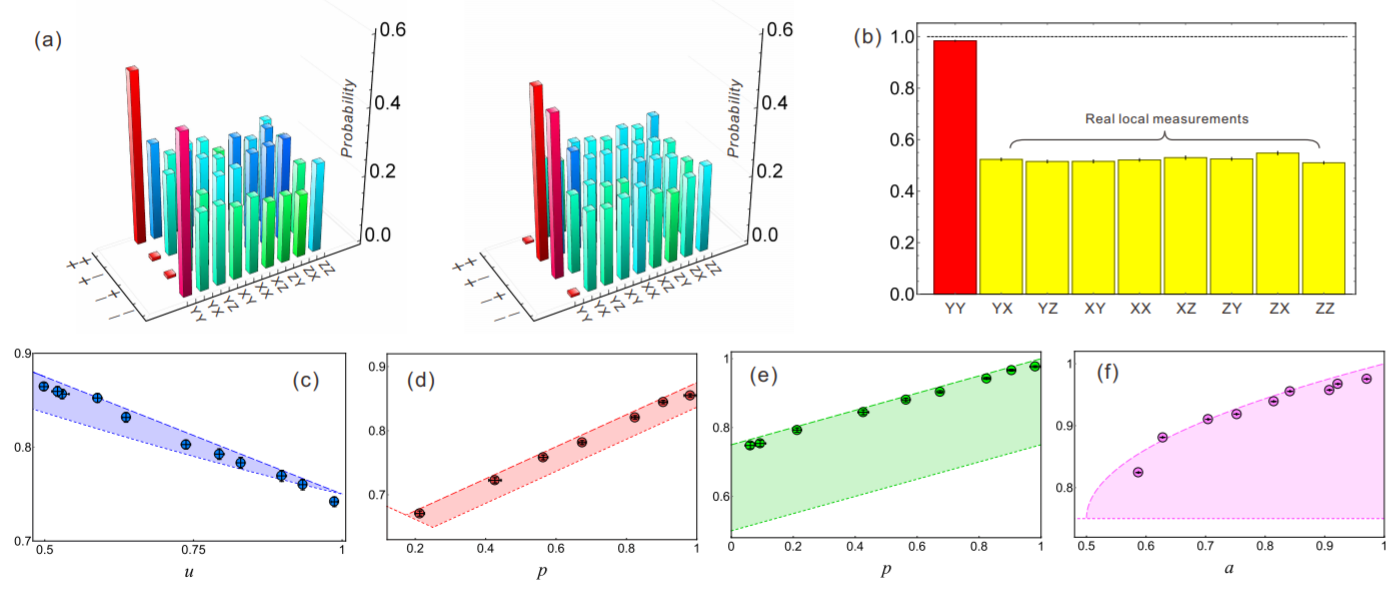Recently, research team led by academician GUO Guangcan from CAS Key Laboratory of Quantum Information of the University of Science and Technology of China (USTC) of CAS, has made an important progress in quantum information theory. Prof. LI Chuanfeng and Prof. XIANG Guoyong from the team, cooperated with Dr. Strelstov from University of Warsaw, investigated the imaginary part of quantum theory as a resource, and several important results have been obtained. Relevant results are now jointly published as Editors’ Suggestion in Physical Review Letters and Physical Review A.
Complex number is a mathematical tool, and it is widely used in mechanics, electrodynamics, optics and other related fields of physics to provide an elegant formulation of the corresponding theory. The birth of quantum mechanics gives a unified picture of wave and particle, and further strengthens the prominent role of complex number in physics. However, the question of whether complex structures are necessary for quantum mechanics has long been debated by physicists
Researchers regarded complex number as a kind of quantum resource, and reveal its irreplaceable role in the local discrimination of bipartite quantum states. Furthermore, in the framework of quantum resource theory, they studied the measurement method of this resource and the transformation problem under various free operations. They have solved the problem of robustness measurement of complex size, transformation of single bit quantum state under free operation and mutual transformation probability of any pure state under free operation.
Using the two-photon entangled state prepared by parametric down conversion, researchers further measured and compared the success probability of locally distinguishing quantum state when only using the real measurement basis and using general measurement basis. They successfully observed the increase of the success probability when using the complex measurement basis, which verified the important role of the complex in quantum mechanics.

Experimental results for local state discrimination (Image by WU Kangda et al.)
This work proves that the imaginary part is indispensable in the theory of quantum mechanics. The reviewer highly recommended it as “I find that the quantum imaginarity can be considered as a stronger form of quantum coherence, ……., I also think that the results in the manuscript will stimulate the research on the quantum foundation and the quantum resource theories with a richer structure”.
(Edited by LU Hongyu, USTC News Center)
